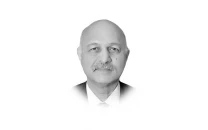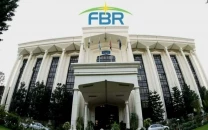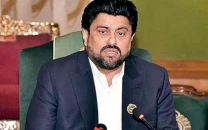Defining democracy
Main agenda for a government of the people should be the provision of universal and equal education, free healthcare

The writer is vice-chancellor of the Pakistan Institute of Development Economics
It is not difficult to establish that the government of Pakistan does not prioritise the needs of the people. At a time when the Food and Agriculture Organisation reports 24 per cent malnutrition in the country, I do not know of any government projects to address the hunger of the people — although projects worth billions and trillions are being proposed and approved every month. More than 50 per cent of enrolled children drop out at the third-grade level, and the majority of those who complete this level cannot read at the first-grade level. But while millions are being spent distributing laptops to university students, efforts to create universal literacy and basic skills of reading, writing and arithmetic fall far short of the mark. Access to healthcare is dismal, and maternal and infant mortality is far above that of countries with comparable income. Our performance on the Millennium Development Goals has been disastrous, despite more than five years of political party rule, mainly because there is no interest on the part of the government to actually achieve these goals. It is not because of lack of resources, but because of lack of political will, that these basic goals remain unfulfilled. Definitely, this is not a government ‘for the people’ since the vast majority of the population derives no benefits from it.
It is important to dig deeper into the reasons for this failure to prioritise the needs of the people. Basically, it is part of the global phenomenon of increasing inequality and increasing power in the hands of a tiny minority that has all the wealth. The concerns of the government reflect the interests of the wealthy elite. For the vast majority of the population, a visit to any fashionable hotels would be like a visit to a very prosperous country.
An article entitled “How the Rich Rule” by Harvard professor Dani Rodrik shows how the wealthy elite have captured the supposedly democratic government of the US. On any issue where the interests of the elite conflict with those of the masses, the US Congress votes in favour of the elite and against popular interest. As just one striking illustration, when faced with widespread defaults on housing mortgages, the US government intervened by providing trillions in bailout money to the affected financial institutions, while virtually nothing was given to the distressed homeowners who lost their homes. This led to the highest levels of homelessness and hunger seen in the US since the Second World War.
Princeton economists Atif Mian and Amir Sufi, in their landmark book House of Debt, have shown that bailouts of homeowners could have achieved financial stability at a much lower cost and averted the economic crisis that ensued. Financial regulations to prevent repeats of this global financial crisis were blocked in Congress and court cases against the deliberately fraudulent activities of banks and insurance companies were manipulated to minimise damage to financial institutions, while defaulting mortgagors were prosecuted to the fullest. All of this illustrates the completion of the capture of the US government by the financial sector, a process started in the Reagan-Thatcher era using the powerful mantra of “financial liberalisation”.
Similar dynamics are in operation here in Pakistan. The government is not a means to serve the people but a means to exploit the people. Military dictators and political parties have been taking turns in extracting surplus from the suffering population — instead of the colonial practice of sending the surplus to England, they distribute it among themselves. A genuine democracy must be responsive to the needs of the people. The main agenda for a government of the people should be the provision of universal and equal education, free healthcare on the European pattern (instead of the terrible private system prevalent in the US), and decent livelihoods for all. Unfortunately, mainstream economic and political theories are ideological constructs designed to strengthen the status quo and the rule of the rich, and these have taken in the vast majority of those who are sincere to Pakistan, depriving them of the capability of seeing the solutions.
We do face a genuine and difficult dilemma in terms of how to persuade the rich and powerful to gracefully share power and privilege with the masses or the have-nots. The French Revolution achieved this goal by violent and radical means. But our destiny is in our hands and there are many other pathways, which can lead to achievement of this goal. Unfortunately, currently this is not on the radar screen as a desirable goal. Without creating consensus on the need of prosperity for the majority of the population, which lives below the poverty line, it is not possible to make progress towards democracy. Some defenders of the status quo offer the excuse that we are too poor to offer universal education and healthcare on the European pattern. These people are unaware that European societies started offering universal social protection at levels of GDP per capita similar to or less than our own historically. If we take the popular view that democracy means elections and political parties, then we have already achieved the goal. This seems like a facile approach that only avoids the problems we face. Rather, we should be struggling to solve them.
Published in The Express Tribune, February 3rd, 2015.
Like Opinion & Editorial on Facebook, follow @ETOpEd on Twitter to receive all updates on all our daily pieces.














COMMENTS
Comments are moderated and generally will be posted if they are on-topic and not abusive.
For more information, please see our Comments FAQ